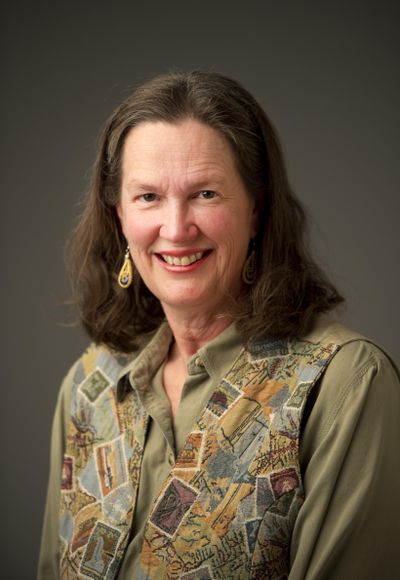Sue Lani Madsen: Mistrust of the media runs high, but we all need journalists

At least a few fireworks were expected, but nothing exciting happened at the first public union negotiations in the state of Washington to be held in an open public meeting.
The discussions were cordial, the subject bordered on boring, and the Lincoln County commissioners later said it wasn’t any different from when they met behind closed doors. The Teamsters’ negotiator reserved the right to pursue additional legal challenges, but agreed they would bargain in good faith.
And I wouldn’t know that if a reporter hadn’t been there, because I wasn’t. We all have to rely on media to keep us informed, even if this is a season when trust in the news media is at an all-time low.
For an update on last Tuesday’s historic meeting, I turned to Mark Smith of the local weekly serving eastern Lincoln County, the Davenport Times. Last September, Mark and I had been the only two members of the public present at a regular county commissioners’ meeting listening to the Teamsters whine about having to negotiate in public. Mark has been the reporter (and the editor, photographer and paper carrier) for the Times for 17 years. I trust his firsthand reports when I can’t be there because I know him as a member of the community.
But once we move beyond the hyperlocal news of a rural county, how do we know whom to trust? I asked Mark how the media scandals at the national level are affecting him at a small-town weekly. He’s been writing for community newspapers in northeast Washington for 25 years, with a 14-year break in the middle of his journalism career to serve as a full-time pastor in Airway Heights.
He said it feels similar to the 1980s when the Jimmy Swaggart and Jim Bakker televangelist scandals at the national level forced him to defend his profession at a local level. “There is the same sense now that if one media source is bad, they all are,” Mark said.
He believes he’ll weather the fake news and biased media storm because he’s built relationships in the community to establish trust and credibility. There’s an accountability that comes from being a visible presence at the local city council meeting or high school sports events. People feel free to let you know face to face if they have a complaint.
When Mark had serious health issues last summer that delayed production of the paper, he wrote about it frankly and discovered how deep those community relationships had become. “I used to only hear from people when they wanted to point out a flaw,” he said. He was warmly surprised at how people sought him out to wish him well.
“Writing about my heart attack humanized me in some people’s eyes.”
It’s tougher to build trust and credibility, to make that human connection, as the circle gets larger. The chance that you’ll know one of the reporters of your regional newspaper, television or radio station becomes remote. Spokane journalists are grappling with breaking down the barriers using social media. Professional use of Facebook Live lets individual reporters connect on what feels like a more personal level with their readers and viewers. It’s not the same thing as buttonholing a Mark Smith on the sidelines of a high school football game, but it does help humanize journalists.
We have access to hours of unedited video of congressional hearings on C-SPAN and state legislative activities on TVW. There are public meetings every day discussing issues that affect our lives. We need journalists we trust to sort and summarize, to be there even when nothing happens, to hold government accountable to us by standing in as witnesses.
The next Lincoln County vs. Teamsters negotiation is scheduled for Jan. 30. It will likely be just as boring as the first one, hopefully establishing a new normal of transparency for public union bargaining across the state. I could clear my calendar and drive over to the county courthouse to listen to a discussion on how sick leave should be accumulated and paid out. Or I could leave the responsibility to Mark. That’s what reporters are for.
Columnist Sue Lani Madsen can be reached at rulingpen@gmail.com or on Twitter @SueLaniMadsen.